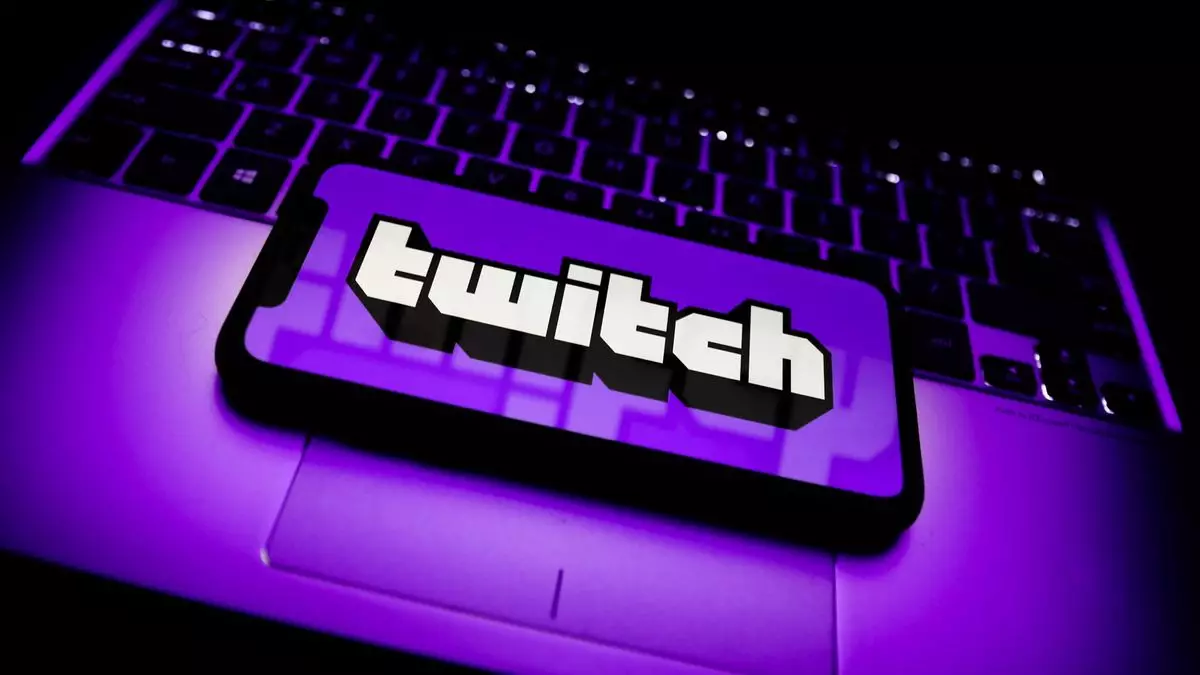In the digital landscape of gaming and streaming, Twitch has emerged as a leading platform, allowing creators to share their passions with audiences worldwide. However, recent changes to their content classification policy have sent shockwaves across the community, particularly among marginalized groups. Less than a week after implementing a rule that required streamers to label content that dealt with “politics and sensitive social issues,” the company quickly revised its stance, introducing an exemption for those discussing their “lived experiences.” This pivot reflects Twitch’s sensitivity to backlash, demonstrating the platform’s awareness of the complicated intersection of social commentary and personal narrative in today’s streaming environment.
The heart of the matter lies in the definition of a “lived experience” versus “political discussion.” Twitch has clarified that if discussions stem from personal narratives rather than explicit political agendas, streamers are not required to label their streams. This distinction aims to provide comfort to those sharing their stories while also informing viewers and advertisers about the nature of the content presented on the platform. Nevertheless, the nuances within this policy raise questions about who defines what constitutes personal experience versus politically charged content.
Backlash and Concerns from the LGBTQ+ and Other Communities
The initial implementation of the content classification policy emerged following a wave of allegations of hate speech, notably concerning Islamophobia and antisemitism among creators. Events like the two-week ban of prominent streamer Zack “Asmongold” Hoyt illustrated the platform’s struggles against the toxicity present in its ecosystem. Yet, as Twitch attempted to shield its community from harmful rhetoric, the new rules inadvertently marginalized other communities, igniting outrage primarily from LGBTQ+ streamers.
Critics argued that merely existing as a member of the LGBTQ+ community has been politicized, subjecting its members to undue scrutiny and potential advertisers’ aversion. Streamers were concerned that even non-political discussions surrounding their identities and experiences might label them as “political” streams, which could discourage potential sponsorships. Twitch’s subsequent revisions acknowledge these concerns, yet the lingering ambiguity surrounding the definitions of “polarizing” and “inflammatory” discussions prompts trepidation within these communities.
A Redefined Focus: Content Guidelines Under Review
With the updated policy, Twitch aims to alleviate the anxiety surrounding their content classification system. Previously contentious examples, such as ideological discussions on gender, race, and sexuality, have been replaced with a reduced focus on discussions noted as “polarizing or inflammatory.” While this may superficially seem like a victory for those concerned with the previous guidelines, criticisms continue to flourish.
Content creators express skepticism about the practical implications of the updated rules. The perceived vagueness leaves room for subjective interpretations. For instance, who determines if a discussion about LGBTQ+ rights is rooted in personal experience or if it crosses the line into political expression? Such dilemmas could foster an environment of fear where streamers review their content through a lens of self-censorship, worrying that their authentic narratives may be misinterpreted by viewers or even reported.
Compounding the debate around Twitch’s policies are fears that the updated guidelines do not substantially resolve the fundamental issues at play. The central concern lies in defining when a discussion tips from personal to political, a murky territory fraught with bias. For instance, if a trans individual discusses their experience with hormone replacement therapy (HRT), would such a conversation be deemed factual or politically charged?
Critics suggest that the policy could become a tool for silencing marginalized voices, as those in opposition to progressive ideas might use Twitch’s reporting mechanisms to target and silence streamers. The potential for abuse within this system raises a significant alarm for content creators who fear both societal backlash and platform retribution.
As Twitch continues to navigate these complex social waters, the platform must balance the need for community safety with the preservation of free expression. The call for a clearer, more inclusive policy remains paramount. For many—especially those whose identities are woven into the fabric of their streaming—each moment of shared experience carries weight and significance.
The ongoing backlash and request for fundamental change reflect a community that demands recognition of their rights, identities, and stories. As Twitch has learned through experience, a proactive approach that truly addresses the concerns of all its users will not only foster a healthier community but also sustain a thriving platform in a divided societal climate. As the dust settles around these latest policy shifts, only time will tell if Twitch can genuinely rebuild trust and assure all its streamers that their voices are valued and protected.

